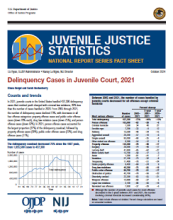The Meaning of Work: Conceptualizing the Deterrent Effect of Employment on Crime among Young Adults
Journal
Sociological Perspectives
Date Published
2006
Agencies
NIJ-Sponsored
Publication Type
Research (Applied/Empirical)



